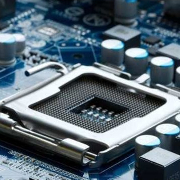What’s mean for Through Hole (THT) PCB Assembly and Surface Mount Technology(SMT)PCB Assembly ?
sales12@hitechpcb.com
Surface Mount Technology (SMT) is necessary for PCB assembly. If the PCB has no through-hole components, Through Hole (THT) PCB Assembly is not needed.
SMT assembly: SMT stands for surface mount technology, which is a versatile PCB assembly technology. Currently, all electronic components can be made into surface-mounted devices (SMD). SMDs are interconnected to the PCB pads with solder paste. SMT assembly is automatic.
THT assembly: THT, or PTH or DIP, means through-hole technology. The electronic components that require THT assembly have long pins. Usually, they are capacitors, fuses...
What’s mean for Through Hole (THT) PCB Assembly and Surface Mount Technology(SMT)PCB Assembly ?
sales12@hitechpcb.com
Surface Mount Technology (SMT) is necessary for PCB assembly. If the PCB has no through-hole components, Through Hole (THT) PCB Assembly is not needed.
SMT assembly: SMT stands for surface mount technology, which is a versatile PCB assembly technology. Currently, all electronic components can be made into surface-mounted devices (SMD). SMDs are interconnected to the PCB pads with solder paste. SMT assembly is automatic.
THT assembly: THT, or PTH or DIP, means through-hole technology. The electronic components that require THT assembly have long pins. Usually, they are capacitors, fuses, and connectors. The PCB is pre-drilled, and these components' pins plug in the holes and wave reflowed. THT assembly is manual.
In the PCB assembly process, SMT assembly happens before the THT assembly.
DIP PCB Assembly
What are the benefits of Through Hole PCB assembly?
Through-Hole PCB Assembly comes with a range of benefits including:
Withstanding stress-As opposed to SMT components, through-hole components are known for their ability to withstand mechanical and environmental stress.
Perfect for large components-Through-hole works well for large components that have to undergo high power and high voltage
High heat tolerance-Known for their high heat tolerance, they find application in a number of industries, particularly military and aerospace.
Ease of Prototyping- Through-hole PCBs also lend themselves to ease of prototyping and improved reliability
High Reliability-Through-hole PCBs are best used for high-reliability products that require stronger connections between layers.
Little surprise then, that even though surface mount components allow for denser configurations, for larger and heavier components that require strong bonds, through-hole technology has remained resilient and relevant.
